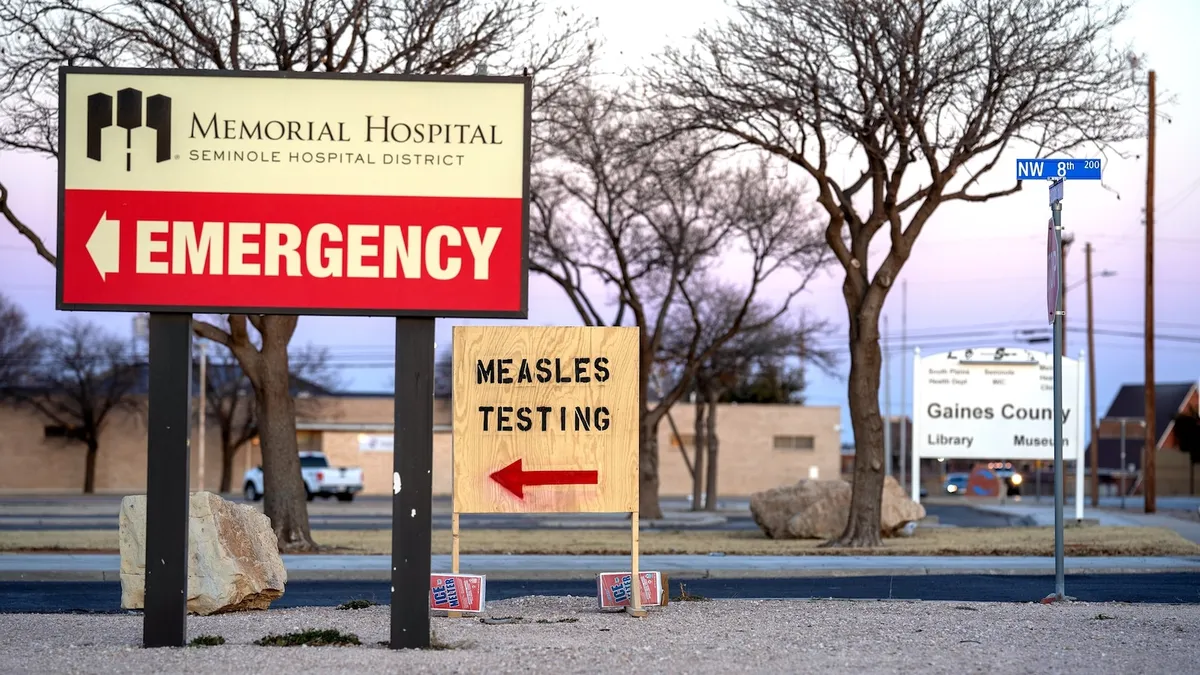
Measles cases in the United States have reached a concerning total of 1,046, as reported by the Centers for Disease Control and Prevention (CDC) on Friday. The virus continues to spread, with confirmed cases across 30 states, including Alaska, Arkansas, California, Colorado, Florida, Georgia, Hawaii, Illinois, Indiana, Kansas, Kentucky, Louisiana, Maryland, Michigan, Minnesota, Missouri, Montana, New Jersey, New Mexico, New York, North Dakota, Ohio, Oklahoma, Pennsylvania, Rhode Island, Tennessee, Texas, Vermont, Virginia, and Washington.
Health experts are warning that the U.S. is on track to surpass the 2019 total of 1,274 cases, which were reported over the entire year. This year’s total represents the second highest number of measles cases recorded in the last 25 years, according to CDC data. Alarmingly, 12% of the measles patients this year have required hospitalization, with the majority being individuals under the age of 19.
The CDC reports that approximately 96% of measles cases are occurring among individuals who are either unvaccinated or whose vaccination status remains unknown. Furthermore, only 1% of cases involve individuals who have received just one dose of the measles, mumps, and rubella (MMR) vaccine, while 2% of cases are among those who received the recommended two doses. Tragically, at least three deaths have occurred this year, including two children and one adult, all of whom were unvaccinated.
Recent incidents have raised alarms about potential exposure to the measles virus. An unvaccinated traveler with measles may have exposed individuals at Denver International Airport and a nearby hotel. The patient was present in the international terminal on May 13 and stayed at the Quality Inn and Suites. Following this, the individual took a shuttle back to the airport and boarded a domestic flight. Health officials from the Colorado Department of Public Health and Environment are reaching out to anyone who may have been exposed during this timeframe.
Similarly, a resident of King County, Washington, traveled through Seattle-Tacoma International Airport while infectious. Public Health – Seattle & King County noted that this individual likely contracted measles during recent international travel. Additionally, an alert from the New Jersey Department of Health indicated that a non-resident who attended a Shakira concert at MetLife Stadium on May 16 may have exposed concert-goers. Symptoms can take time to develop, with officials warning that individuals may show signs of infection as late as June 6.
The CDC continues to recommend that individuals receive two doses of the MMR vaccine, with the first dose administered at 12 to 15 months and the second between 4 and 6 years of age. The effectiveness of one dose is approximately 93%, while two doses increase effectiveness to 97%. Measles was officially declared eliminated in the U.S. back in 2000 due to a highly effective vaccination program. However, vaccination rates have been declining in recent years, leading to increased cases.
Dr. Scott Roberts, an assistant professor at the Yale School of Medicine and medical director of infection prevention at New Haven Hospital, expressed concern over declining vaccination rates. He noted that a 95% immunity threshold is necessary to prevent outbreaks, yet many areas in the U.S. fall below this critical level. Dr. Roberts highlighted the dangers of misinformation surrounding the MMR vaccine, particularly false claims linking it to autism, which have been debunked by rigorous studies.
“We are seeing this misinformation circulating, and it’s critical that we provide accurate information about the safety and effectiveness of the measles vaccine,” Dr. Roberts stated. “Measles is not a trivial illness; it can lead to severe health complications, especially in vulnerable populations.”
Dr. Karen Tachi Udoh, an internal medicine resident at Johns Hopkins Hospital, along with the ABC News Medical Unit, emphasizes the importance of community vaccination to combat the resurgence of measles and protect public health.